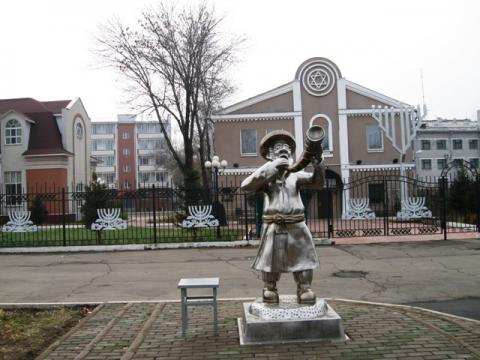Where the Jews Aren't
This would never happen, and in many respects neither really would Birobidzhan, named for the nearby rivers Bira and Bidzhan. Very few Jews actually came, and of those who did barely any remained. By 1935, there were some 14,000 Jews, 23 percent of the population, in a vast, mostly empty terrain inhabited largely by Cossacks and a sprinkling of ethnic Koreans. “To complicate things further,” the journalist Masha Gessen writes, “marauding gangs of ethnic Chinese known as the honghutzu — literally the red-bearded ones — terrorized the locals, especially the Koreans, who cultivated opium poppies, the local currency of choice.”
By the late 1930s, the melding of Yiddish and Communism trumpeted by Birobidzhan’s partisans would be deemed seditious. Many of the region’s leaders were murdered by Stalin, though survivors were soon unleashed to garner the support of American Jews for the Soviet fight against Nazism. By the late 1940s this, too, would be considered proof of espionage. Birobidzhan, never much more than a glimmer in the eyes of a cluster of Soviet bureaucrats and Jewish Marxists, was left to languish.
Why even the glimmer? High among the motivations was the crushing poverty in the 1920s of much of the Soviet Union’s Jewish population, particularly in Ukraine, clustered in trade that was always economically precarious and now condemned as petit bourgeois. Proposals to move Jews to collective farms in Crimea or elsewhere closer to Russia’s center than distant Birobidzhan proved unrealistic, mostly because of resistance from locals.
With national autonomy still an alluring concept for the new Soviet regime, influential Jewish Communists embraced the idea of a place where love of Marx and Sholom Aleichem (one of Birobidzhan’s main avenues would be named after the famed Yiddish writer) could provide the building blocks for a Jewish homeland. Equal to their devotion to the Soviet Union was their loathing for Zionism, although they blithely tore pages out of its repertoire for their propaganda, even paraphrasing Theodor Herzl’s famous dictum, “If you will it, it is no dream.”
Gessen relates their story efficiently, if somewhat sketchily: The village-like clusters making up Jewish Birobidzhan are only passingly described, the geopolitical motivations for the region’s creation are never fleshed out and the influence of the noted historian and ideologue of Jewish autonomism Simon Dubnow is repeatedly mentioned but left undiagnosed. Still, Gessen, who has written about topics like Vladimir Putin and the Boston Marathon bombers, tells a poignant tale in “Where the Jews Aren’t.” The book’s most memorable sections are Gessen’s ruminations on homelessness as experienced by her own generation of Russian Jews — she was an adolescent in Moscow in the early 1980s. There she faced a “relatively benign form of consistent discrimination,” with her Jewish identity “entirely negative: It consisted of non-belonging.”
This helps her better appreciate the yearnings of the supporters of “perhaps the worst good idea ever,” with settlers continuing to arrive even after World War II armed with “hope crippled by tragedy, but still alive.” For similar reasons, of course, others in far larger numbers would make the trek at much the same time to Palestine, they too desperate to live under benign blue skies with firm ground beneath. Birobidzhan quickly descended into irrelevance. Israel’s fate would be altogether different, although now — perhaps more than ever before — the Jewish hunger for normalcy is proving exasperatingly elusive.
Steven J. Zipperstein

